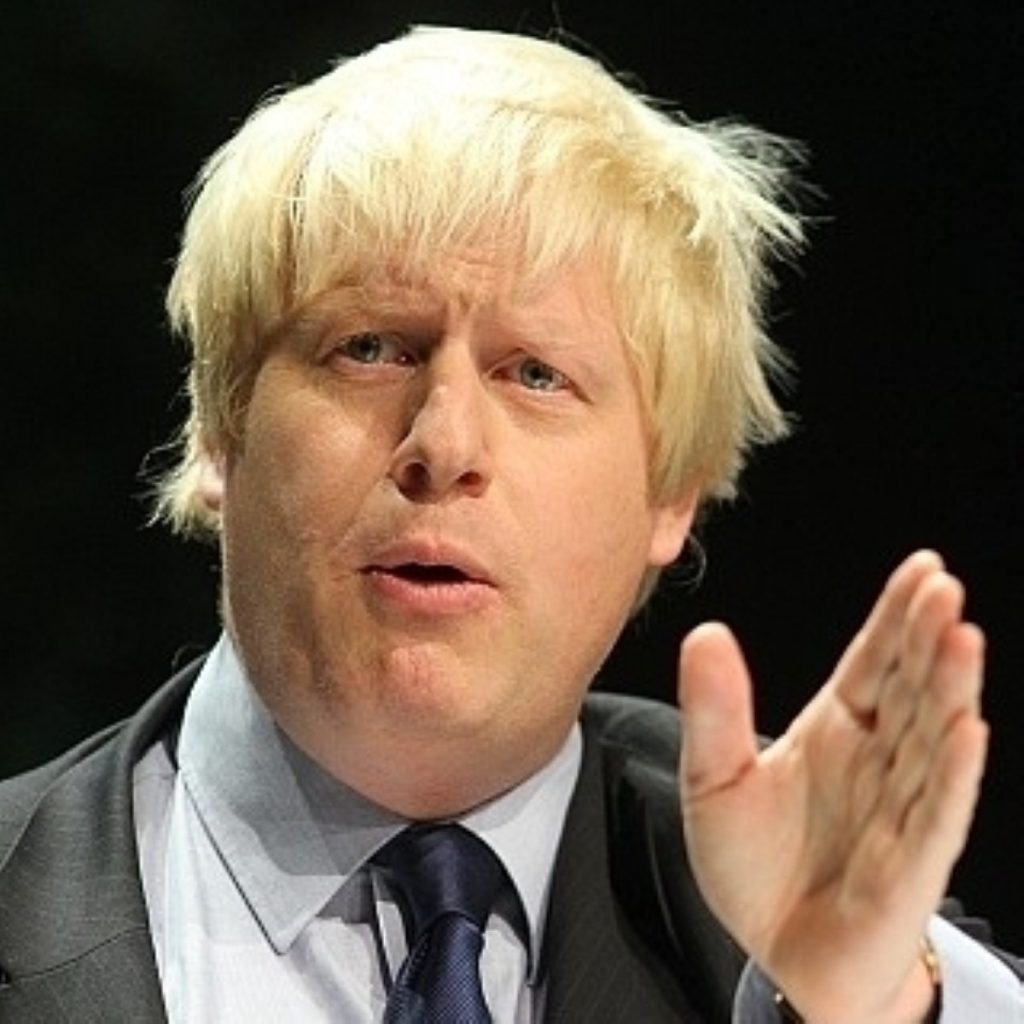Boris: Govt intellectually and morally wrong on Europe
By Charles MaggsFollow @charlesmaggs
Boris Johnson has criticised the coalition for encouraging closer fiscal and political union within the Eurozone, in yet another attack on David Cameron's government.
The London mayor said ministers were "intellectually and probably morally wrong" to encourage closer fiscal and political union within the Eurozone in a speech at Thomson Reuters.
Speaking on an issue close to the hearts of many grassroots Conservative party members, he said upcoming discussions over a eurozone fiscal pact provide the ideal opportunity to change Britain's relationship with Europe.


He said that most "right-thinking" people want a trading relationship with the EU more akin to that of Norway or Switzerland and suggested that the government should change course to get there.
"Can we reach that Nirvana?" he asked himself, adding: "I think we can. It needs a change in tactics from the government.
"I don't understand why we continually urge the euro-zone countries to go forward with this fiscal and political union when we know in our hearts that it is anti-democratic and therefore intellectually and probably morally wrong".
He also reiterated calls for a referendum on membership following a renegotiation.
"It's high time we had a referendum on our membership of the EU," Johnson added.
"We haven't had one since 1975 and the question is very simple: Do you want to stay in the EU single market as renegotiated or not?
"If they don't think it is an improvement they can exercise their sovereign right to leave the EU."
Johnson's views are thought to be close to those of the prime minister. Like the prime minister, the mayor argued in favour of remaining within the EU following a renegotiated, looser membership.
Cameron was expected to make an eagerly anticipated key note speech on Europe before the new year, but this is looking increasingly unlikely.
The recent rise in the polls of Ukip and ongoing turmoil on the continent has convinced many Conservatives that the crunch day over Britain's role in Europe is drawing ever closer.
Europe has a history of tearing the Conservative party apart. Enoch Powell and Ted Heath in the 1970s, the Maastricht rebels who troubled John Major's second term in government and most recently the two massive rebellions against the government in this parliament have all undermined the unity of the party.

